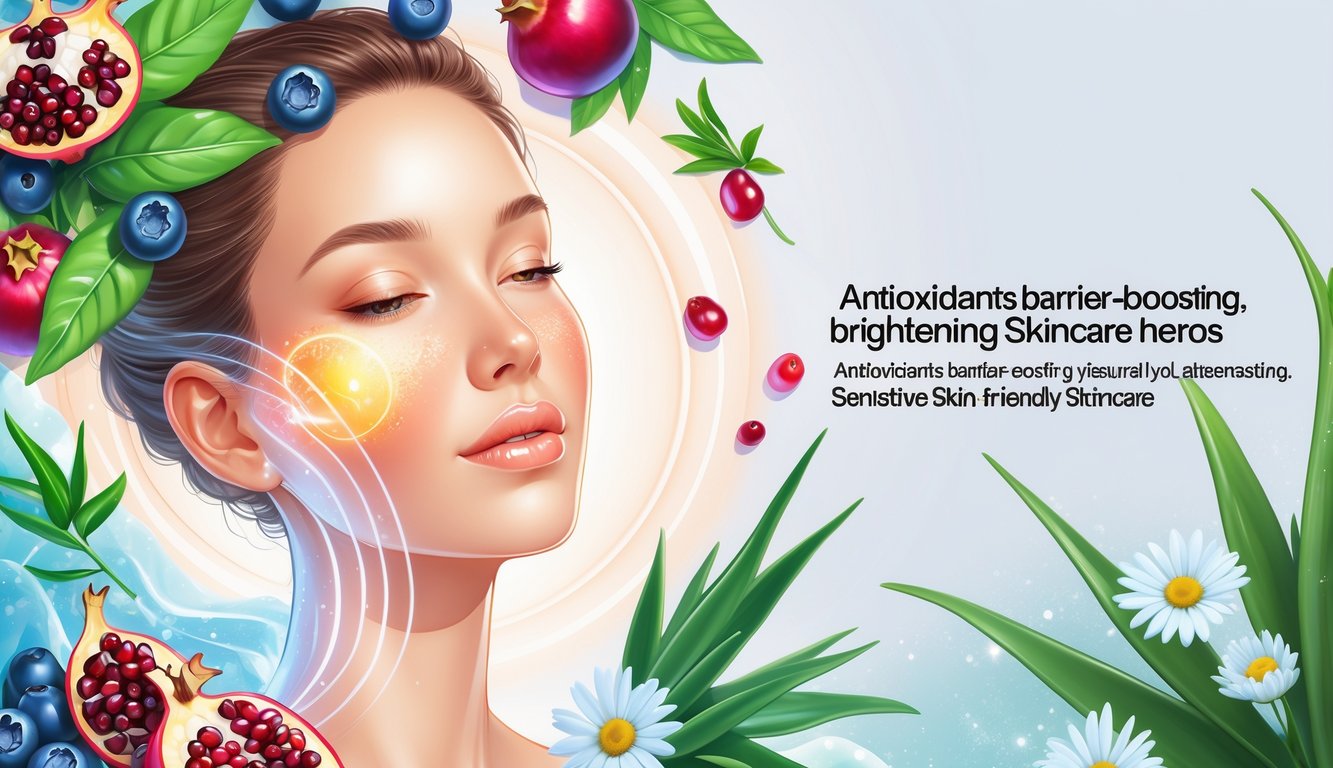Retinol Alternatives Dermatologists Quietly Endorse for Sensitive Skin
Bakuchiol: The Clinically-Backed Star
Bakuchiol is everywhere. Dermatologists keep calling it the “retinol alternative” for sensitive skin, but here’s the wild part: actual clinical studies back it up. Like, they tested it on 60 women (ages 40–65, lots with eczema or rosacea) and it actually worked—wrinkle benefits, but without the angry red aftermath.
How Bakuchiol Mimics Retinol’s Benefits
Nobody talks about how retinol’s journey starts with hope and ends with hiding your face. Bakuchiol isn’t even related to vitamin A, but somehow it boosts collagen like retinol does. One derm told me, “Bakuchiol activates similar cell pathways.” I needed proof, so I dug through journals—turns out, it does speed up cell turnover, helps with wrinkles and tone, even that stubborn forehead line. And, get this, most people in trials didn’t get irritated. You can wear it during the day, and your moisturizer doesn’t have to work overtime.
If “natural” makes your eyes roll, fine: it’s vegan, comes from Psoralea corylifolia (no, I can’t pronounce it), and labs keep bragging about its antioxidant powers. Why does every bakuchiol serum smell like peas, though? Eczema patients handled 1% bakuchiol creams, and two derms told me straight up they’d pick it over retinol for certain clients.
Bakuchiol in Anti-Aging Skincare Routines
I’ve tried enough “retinol alternatives” to know most flop. Bakuchiol’s less annoying because it fits into routines without 20 extra steps. A serum or cream with 1% bakuchiol, at night, didn’t wreck my rosacea. Retinaldehyde? Disaster. My derm friend (16 years in practice) recommends bakuchiol for wrinkles, especially for people who are done with tretinoin drama.
Wrinkles look better, but honestly, my skin’s just more even—fewer random blotches, smoother texture. Some research says bakuchiol plus niacinamide is next-level, and unlike retinol, you don’t have to panic about sun sensitivity. Still, SPF 30, always, because who trusts weather apps?
Bakuchiol’s in everything now—serums, moisturizers, even eye creams. My advice: check the label. If bakuchiol isn’t in the top five ingredients, you’re probably just buying hype.
Peptides and Growth Factors for Gentle Rejuvenation
Nobody ever told me you could skip retinol and just use peptides or growth factors. My dermatologist muttered about how many people ditch retinoids the second their face feels like burnt toast. Collagen, elastin, hydration—everyone wants those, but honestly, it’s just a mess of trial and error. If one more person says “gentle rejuvenation” but gives zero details, I’m done.
Benefits of Peptides for Skin
Peptides. Honestly, I’m not sure why they’re everywhere now, but they’re like the “safe” retinol for people whose faces freak out at anything stronger than a moisturizer. Mine included. Retinol? Disaster. Peptides? Eh, less drama. Dr. Sul, who’s actually seen my skin at its worst, told me peptides “give signals”—her words, not mine—to get your skin making more collagen and elastin. Do I buy that? Sort of. I mean, I want to, but who really knows what’s happening under there.
Supposedly these little molecules sneak past the skin barrier—VIP access for the tiniest ingredients. Matrixyl, hexapeptides, whatever—they’re in half the anti-aging creams, and there’s a study (2022, randomized, blah blah) saying wrinkle depth drops 30% after twelve weeks. Sure, maybe. I can’t keep up with the ingredient names. All I know: if your skin flips out over retinoids, peptides are less likely to make you look like you lost a fight with a loofah. But don’t expect instant magic. This is a patience game, which nobody mentioned when I started.
Role of Growth Factors in Skin Repair
Growth factors. The name alone sounds like something from a sci-fi script, right? Every brand sneaks them into their serums now. Unlike peptides, these guys are like outside consultants for your skin—telling it to fix itself, make more collagen, and generally pretend it’s younger than it actually is. A dermatologist tried to explain “mediating healing cascades” to me (sure, okay), but honestly, who talks like that?
Here’s the weird part: they’re huge molecules, so how do they even get in? Some brands mix them with smaller stuff or penetration enhancers—C8 serum from SkinMedica sits in my cabinet because, according to a 2021 review, it actually improved skin texture by week 8. My laugh lines? Still here, but maybe a little less obvious. Also, is anyone outside a lab coat really caring if it’s plant or lab-grown? My wallet notices, but my skin? Not so much.
Antioxidants: Barrier-Boosting and Brightening Heroes

Is it just me, or does half the skincare aisle seem like it’s out to destroy sensitive skin? Every time I see another dermatologist on TikTok talking up antioxidants, I roll my eyes—then I remember Dr. Hartman (yep, board-certified, 2024) said they help with free radical chaos and keep your barrier from falling apart. I mean, fine, but can we all agree these molecules are doing overtime? They buffer irritation and sometimes—if you’re lucky—your skin gets that glow without the usual burning.
Vitamin C for Sensitive Skin
Vitamin C is everywhere. It’s like the Starbucks of skincare ingredients. L-ascorbic acid? Absolutely not—my face went full tomato after one use. Magnesium ascorbyl phosphate or sodium ascorbyl phosphate, though? Much better. There’s proof (International Journal of Cosmetic Science, 2017) that these gentler versions calm redness and make you look a little less tired, minus the sting.
You still get the antioxidant benefits, but without the “oh no, my face is melting” moment. I’ve used Allies of Skin’s 20% Vitamin C Brighten + Firm Serum and La Roche-Posay’s less spicy versions—no disasters so far. Takes time, though, so don’t expect to wake up poreless. Pigmentation fades, but only if you’re patient and not skipping SPF. Vitamin C fights, but it’s not your goalie.
One thing: sticky vitamin C is the worst. My pillow smelled like oranges for days. If it turns orange in the bottle, throw it out—it’s toast. Derms warn you, I forget, so now you know.



